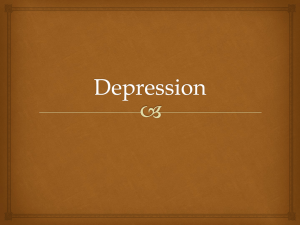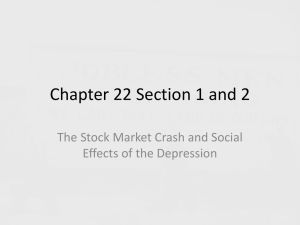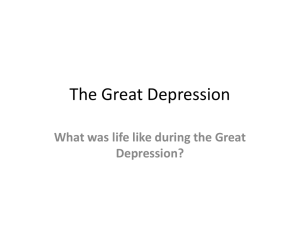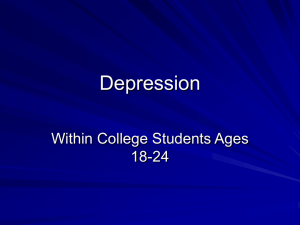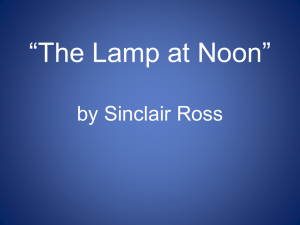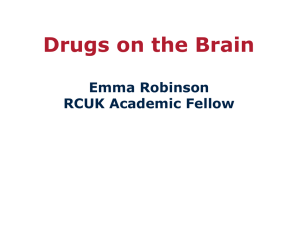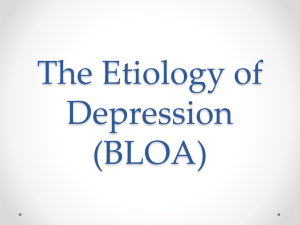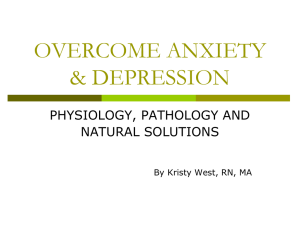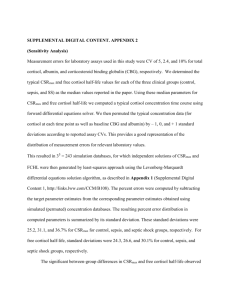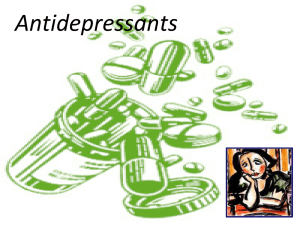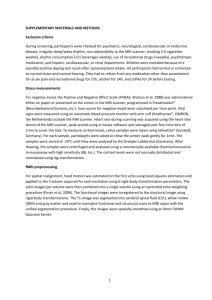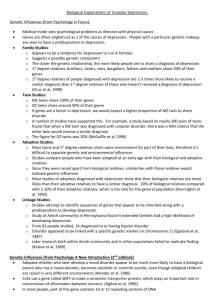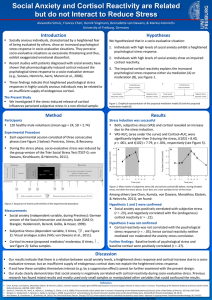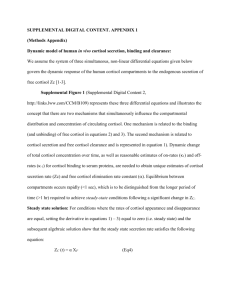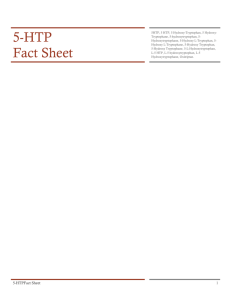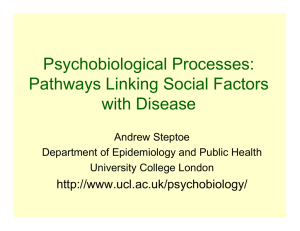Bio etiology depression
advertisement
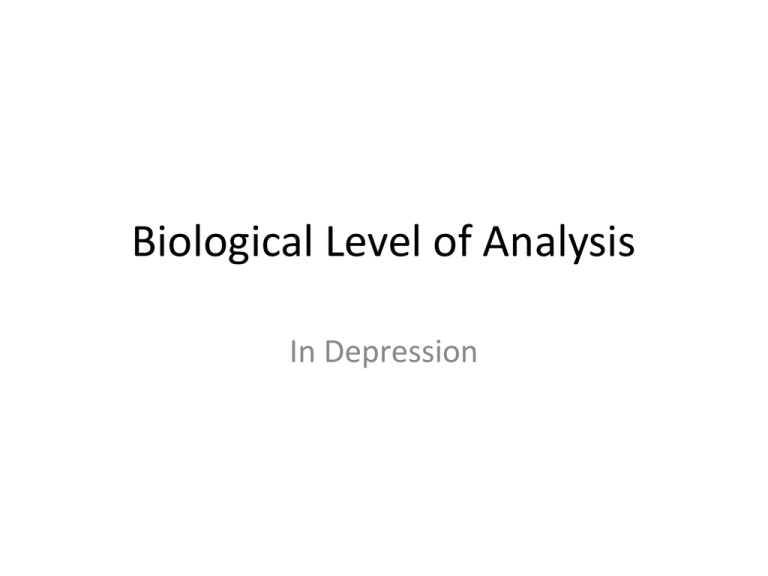
Biological Level of Analysis In Depression Serotonin Hypothesis Catecholamine Hypothesis • Suggested by Joseph Schildkraut in 1965 • Depression is associated with low levels of noradrenaline • Serotonin Hypothesis – depression Janowsky et al. (1972) • Participants given drug called ‘physostigmine’ • Within minutes, profoundly depressed, selfhate, and suicidal wishes • Mood change artificially, disturbance in neurotransmission? • Drugs increasing noradrenaline reduce depression symptoms Arguments • Delgano and Moreno (2000) – depression may influence the production of neurotransmitters • Rampello et al. (2000) – MDD patients imbalance of noradrenaline, serotonin, dopamine, acetylcholine – contradicted by Burns (2003) • Lacasse and Leo (2005) – the brain is too complex to consider only one reason behind depression So far.. • Only one of the theories • Research is less on the neurotransmitter, more on the process as a whole Cortisol Hypothesis • Cortisol: hormone responsible for the stress system • Belongs to stress hormones called glucocorticoids (plays role in fear and anxiety reactions) • Patients with MDP have high levels of cortisol, indicating possible link Over-secretion of cortisol may be linked to other neurotransmitters High levels of cortisol may: • lower serotonin receptors • Lowers dopamine levels • Weaken the function of receptors for noradrenaline Relationship between stress and depression • It cannot be concluded that there is a causational or correlational relationship • However high levels of cortisol are associated with depressive symptoms • Drugs that normalizes cortisol levels help decrease depression symptoms Effects of Depression Long term depression may lead to structural changes • Decrease of glucorticoid receptors in the hippocampus and prefrontal cortex of suicidal victims • Cushing’s syndrome results in excessive production of cortisol Genetics • Genetic predisposition/ vulnerability may explain depression Nurnberger and Gershon (1982): • 7 twin studies • Average concordance rate for MZ twins: 65% • DZ twins: 14% Duenwald (2003): 5-HTT gene: serotonin pathways responsible for controlling mood, emotions, aggression, sleep and anxiety Caspi et al (2003): • Correlation between gene and depression does not indicate causation • Genetic factors moderate responses to environmental factors

